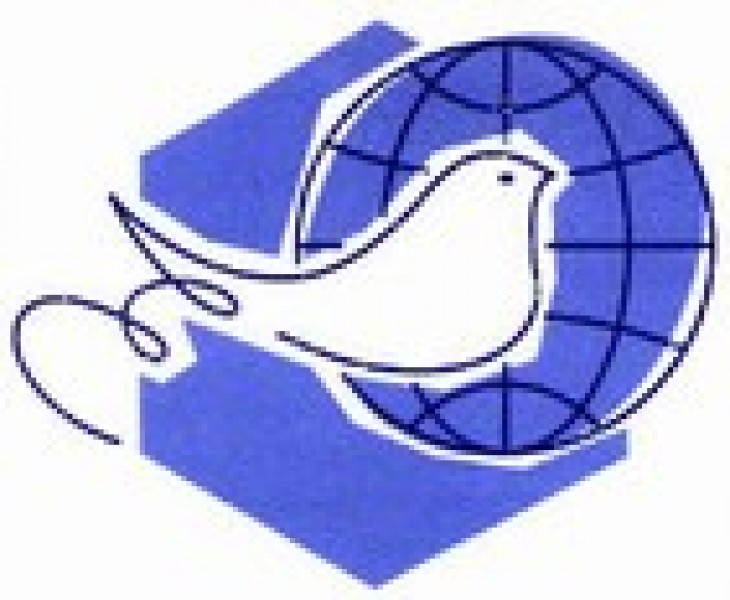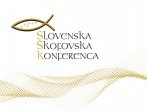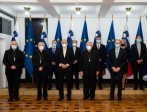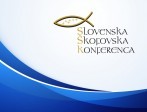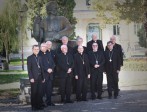A Statement by the Commission for Justice and Peace at the
Slovenian Bishops’ Conference
The freedom of religion should be protected also in the case of the Jewish and Islamic communities in the Republic of Slovenia
We at the Commission for Justice and Peace at the Slovenian Bishops’ Conference (SBC) are concerned by the Opinion issued by the Office of the Republic of Slovenia for the Protection of Human Rights (OPHR) regarding inadmissibility of circumcision of boys for non-medical (i.e., religious) reasons.[1] The Opinion primarily targets the religious practices of communities of faith and Churches, for which the OPHR has no real competence or legal authority (Cf. Article 1 of the Law on the Protection of Human Rights). The wording of the Opinion leads one to conclude that the OPHR was not even asked for a statement “that would directly address the issue of circumcision of an individual (particular) child.” Moreover, we have determined that the OPHR reached the Opinion without any prior consultation with the communities of faith and Churches, which is in violation of Article 5 Paragraph 2 of the Law on Religious Freedom; the Law requires government agencies to respect the identity of Churches and other communities of faith, to establish an open and lasting dialog and to develop ways of long-term collaboration. The action of the OPHR is not at all in accord with the legislation in force. The content of the Opinion is also contrary to the internationally accepted practice and represents a violation of human rights and basic freedoms; the freedom of religion is one of the most basic freedoms. The declarations and conventions of the United Nations Organization that regulate the rights of children were formulated through the unified effort of all nations of the world, including Moslem and Jewish. It is therefore impossible to interpret the positive corpus of human rights without due consideration of the religious and cultural identities of the peoples that collaborated as integral parts of the international community in the formulation of the modern values of the world.
In addition, the Constitution of the Republic of Slovenia is founded on a fundamental respect of all, including religious Christians, Moslems and Jews. The Opinion of the OPHR regarding inadmissibility of circumcision of boys for religious reasons is thus unilateral, authoritarian and particular. Its unacceptable interpretation of Article 41 of the Constitution represents a breach of the Slovenian and European cultural tradition, which is of utmost concern, especially from the point of the individual aspect of the freedom of religion for Muslims and Jews in the Republic of Slovenia. As the OPHR is denying the Jewish and Muslim communities the possibility of expressing their own religious identities, which are essentially ritually dependent on male circumcision, and is threatening with an incrimination of these rituals, the two communities are being marginalized to the edge of the public space and forced into an illegal activity. We have already seen such discriminatory and exclusionary practices in history, most systematically and extensively in the totalitarian regimes of the Nazi Germany and Communist Soviet Union.
A comparative review of legal systems in the most developed and progressive secular states shows that circumcision of boys for religious reasons is not prohibited practically anywhere. In Germany, the Netherlands, Great Britain and the USA carrying out such rites is part of the rights of parents, who in agreement with their religious convictions guarantee their children a religious and moral education and integration into their communities of faith; rites of initiation into a community of faith are based on the most profound symbolic ritual expression of the human being and can only be fully expressed through his or her physical and spiritual integrity. The State is for the most part obligated to insure the possibility of exercising this right. A similar arrangement is in Finland, where the Finnish Supreme Court decided in 2008 that male circumcision for religious reasons is not a criminal act. According to the Court, this is an established tradition and an integral part of the identity of a Muslim man.
Professionally performed circumcision of boys (as opposed to circumcision or rather mutilation of girls) does not represent a harmful operation that would adversely affect the health and physical integrity of children (Cf. opinions of the World Health Organization in the area of fight against HIV/AIDS).[2] The Commission for Justice and Peace at the Slovenian Bishops’ Conference therefore rejects the platform of any institution that is advocating or pursuing a limitation or outright prohibition of circumcision of boys for religious reasons. The OPHR in its Opinion has not demonstrated that the procedure is harmful to health but only has derived from its interpretation of Articles 56 and 35 of the Constitution of the Republic of Slovenia that any interventions into the physical integrity of a child are limited and justifiable for medical reasons only. Such an interpretation is narrow, arbitrary and has no standing with the Constitution. In addition, the Opinion has no legal standing in its statement that circumcision for religious reasons has no basis in the law but may have characteristics of a criminal act. Both citations completely ignore the content and meaning of Act 41 of the Constitution, which guarantees the freedom of religion and the right of parents to give religious education to their children. The Opinion of the OPHR in our view represents a public call to disrespect the identities of at least two communities of faith in the Republic of Slovenia and an abridgment of individual freedom of religion of their members, for which it is contrary to the Constitution of the Republic of Slovenia and the Law on Religious Freedom.
A government with such an Opinion is overstepping the bounds of separation of the State from the Church and communities of faith and is not functioning in a value-neutral fashion. It is infringing upon the freedom of religion and the right of parents to a religious education of their children in the case of parents of Jewish and Muslim descent, and is by extension denying all its citizens and residents the right to a religious, cultural and community identity. The Commission for Justice and Peace at the Slovenian Episcopal Conference is expressing full support to and solidarity with the Jewish and Muslim communities regarding the protection of the freedom of religion in the cited case. At the same time it is appealing to all the appropriate government agencies and institutions to forego value-biased stand of inadmissibility of circumcision of boys for religious reasons and reclaim the confidence of all religious citizens and residents of the Republic of Slovenia.
Msgr. Marjan Turnšek, Ph.D.
Metropolitan Archbishop of Maribor
President, Commission for Justice and Peace at the Slovenian Bishops’ Conference
[1] Cf. Office for the Protection of Human Rights of the Republic of Slovenia. Circumcision of boys for nonmedical reasons is a violation of human rights of a child. Accessible at http://www.varuh-rs.si/medijsko-sredisce/aktualni-primeri/novice/detajl/obrezovanje-fantkov-iz-nemedicinskih-razlogov-je-krsitev-otrokovih-pravic/?cHash=7364092ccb (February 3, 2012).
[2] Cf. World Health Organization. Male circumcision for HIV prevention. Accessible at http://www.who.int/hiv/topics/malecircumcision/en/ (February 4, 2012).

